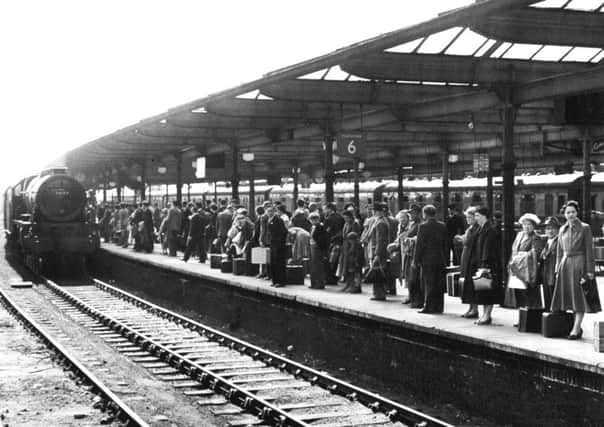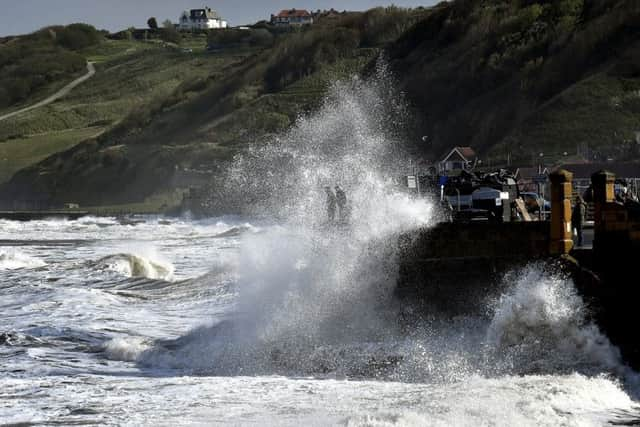We should rethink dates of our Banks Holidays and not forget the workers – Jayne Dowle


And then we have to wait almost three long months – at the one time when Great Britain is most likely to enjoy a bit of nice weather – before we can let our hair down at the end of August.
And these are supposed to be holidays – otherwise known as fun days when we can please ourselves, whether this involves redecorating the spare bedroom, sitting in traffic on the A64 or lying on the sofa bingeing on a box set.
Advertisement
Hide AdAdvertisement
Hide AdNevertheless, last year, the Labour leader vowed that his government would establish four new public holidays.


Ostensibly, this move would commemorate saints’ days. So England would get St George’s Day on April 23, Scotland would have St Andrew’s Day at the end of November, Wales would celebrate St David at the beginning of March and Northern Ireland would be granted St Patrick’s Day on March 17, although most people I know with even an ounce of Irish in them already take this as a de facto day off anyway.
However, it all comes with a caveat. According to Mr Corbyn, we’re only going to be granted these extra days of so-called leisure because we’ve suffered more than eight years of Tory austerity. And there, in a nutshell, you have the problem with our entire historic attitude to bank holidays.
Although some, including May Day, have their roots in folk traditions going back to the dawn of time, their very existence is a throw-back to an industry-heavy economical landscape, in which work, family and leisure time was strictly regimented.
Advertisement
Hide AdAdvertisement
Hide AdWith the exception of Christmas Day and Good Friday, which are important dates in the Christian religion as well as long-standing public holidays, they were invented entirely to appease the workers.
And before anyone reminds me that Whitsuntide is also an important time for Christians, I do know this. I’m old enough to remember getting new clothes and parading through the streets on my way to chapel on Whit Sunday.
The Spring Bank Monday bit was added on in 1871, justified at the time because it was intended to instil both gratitude and religious observance amongst the grateful working class. That was the theory. It also coincided with the arrival of cheap and readily available railway transportation, which took factory lads and lasses to the seaside for the day where the only thing observed was the licensing laws.
Indeed, the May Day Bank Holiday only exists because James Callaghan, the then PM, invented it in 1978 to coincide with International Workers’ Day, and “to reward the workers for their long winter of toil”. It didn’t do him much good. He lost to Margaret Thatcher the following year and the rest, as they say, is history.
Advertisement
Hide AdAdvertisement
Hide AdWhich is exactly where prevailing attitudes to bank holidays belongs. Where does the idea of a workers’ day off fit with today’s gig-based economy, when millions of people have no choice but to work when they can? How do bank holidays sit with consumer demands for seven-days-a-week, 24/7 retail and leisure opportunities – and needless to say, with retailers who are obliged to slug it out on an ever-more competitive environment?
These workers that Jeremy Corbyn is talking about, are they the same ones manning the tills in the DIY superstores and putting in 12-hour shifts in care homes and hospitals? Are they the people who run small businesses and the self-employed, who are often obliged to keep slogging away whilst their public-sector neighbours are sat in the next-door garden having a barbecue?
He’s got to understand that the days of the factory hooter sounding and the streets emptying for the duration belong somewhere around the time of the aforementioned Callaghan, when I was prancing through the streets in my new Whitsun frock on the way to chapel.
In short, he should stop being so British about the whole thing. Indeed, so should we all. Why can’t we be like the Americans and the French, who celebrate their abundance of public holidays and saints’ days with gusto and abandon?
Advertisement
Hide AdAdvertisement
Hide AdIndependence Day, Emancipation Day, Thanksgiving, Bastille Day, Ascension Day, All Saints’ and Assumption Day, all spread out evenly throughout the year and seemingly without a grudging sense of guilt, work rota wrangling and cap-doffing between them.
I’m no expert in international labour practices, but I’d wager that when public holidays are less tied to the concept of work, there is less resentment from those who are obliged to do so.
And to get back to Mr Corbyn’s anachronistic but useful point, surely it’s better for worker productivity to offer a little break more often than all at once? If he – and other politicians – want to tempt us with treats, they must understand what makes us tick.